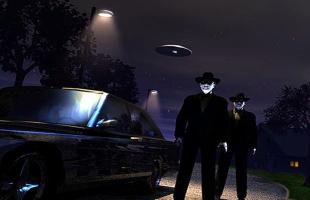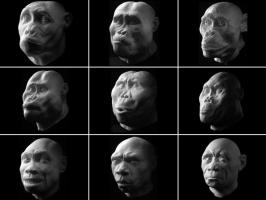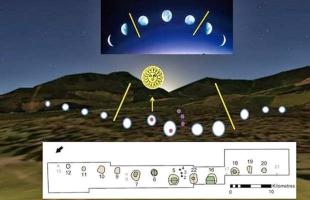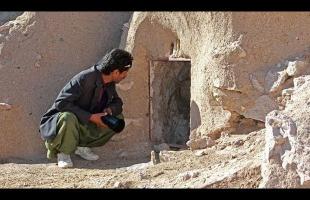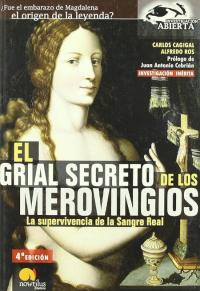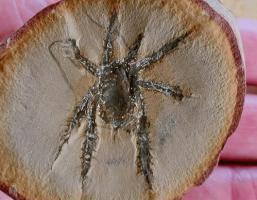Copy Link
Add to Bookmark
Report
AIList Digest Volume 3 Issue 186

AIList Digest Sunday, 15 Dec 1985 Volume 3 : Issue 186
Today's Topics:
Seminars - Learning Objects from Images (MIT) &
SDI Debate (SU) &
Deduction as a Programming Methodology (UTexas) &
Typed Equational Logic Programming (UTexas),
Conference - Expert Systems in Government &
Object-Oriented Programming System, Languages, and Applications
----------------------------------------------------------------------
Date: Tue, 10 Dec 85 20:06 EST
From: Brian C. Williams <WILLIAMS at OZ.MIT.EDU>
Subject: Seminar - Learning Objects from Images (MIT)
[Forwarded from the MIT bboard by SASW@MIT-MC.]
Thursday , December 12 4:00pm Room: NE43- 8th floor Playroom
The Artificial Intelligence Lab
Revolving Seminar Series
"Learning Symbolic Object Models From Images"
Jonathan Connell
MIT, AI Lab
This talk will present the results of an implemented system for
learning structural prototypes of objects directly from gray-scale
images. The vision component of this system employs Brady's Smoothed
Local Symmetries to divide an object into parts which are then
described symbolically. The learning component takes these
descriptions and forms a model of the examples presented in a manner
similar to Winston's ANALOGY program. The problem of matching complex
structured descriptions and the difficult task of reasoning about
function from form will also be briefly discussed.
------------------------------
Date: Fri 13 Dec 85 17:56:01-PST
From: Joan Feigenbaum <JF@SU-SUSHI.ARPA>
Subject: Seminar - SDI Debate (SU)
``SDI: How Feasible, How Useful, How Robust?''
This will be a technical debate, covering both hardware and software aspects
of SDI.
Sponsor: Stanford Computer Science Department
Date: December 19, 1985
Time: 8:00 p.m.
Place: Terman Auditorium
Organizer: Barbara Simons, IBM-SJ
Moderator: Dr. Marvin L. Goldberger, President of Cal Tech.
Former member of President's Science Advisory Committee
and Consultant on Arms Control and International Security.
Panelists:
Advocates:
Professor Richard Lipton, Professor of Computer Science at Princeton
University, Current member of SDIO's Panel on Computing and Support of Battle
Management.
Major Simon Peter Warden, the Special Assistant to the Director of the SDIO
and Technical Advisor to the Nuclear and Space Arms Talk with the USSR
in Geneva.
Opponents:
Dr. Richard L. Garwin, IBM Fellow and Adjunct Professor of Physics at
Columbia University, Physicist and Defense Consultant.
Professor David Parnas, Lansdown Professor of Computer Science at the
University of Victoria, Former member of the SDI Organization's
Panel on Computing and Support of Battle Management.
------------------------------
Date: Fri 13 Dec 85 11:56:26-CST
From: <AI.HASSAN@MCC.ARPA>
Subject: Seminar - Deduction as a Programming Methodology (UTexas)
Gerard Huet
INRIA (on Sabbatical at CMU)
MCC-AI Lecture
Thursday, December 19 at 10:00am
Echelon I, Room 409
"Intuitionistic Higher-Order Natural Deduction
as a Programming Methodology"
The talk will review various aspects of the correspondence between
types and propositions and its applications to type-checking and
program proving.
A higher-order intuitionistic natural deduction formalism, the
Calculus of Constructions, is introduced and motivated by examples.
------------------------------
Date: Fri 13 Dec 85 11:55:40-CST
From: <AI.HASSAN@MCC.ARPA>
Subject: Seminar - Typed Equational Logic Programming (UTexas)
Typed Equational Logic as a Programming Language
Gert Smolka
Cornell University
MCC-AI Lecture
WEDNESDAY, DECEMBER 18 at 3:00pm
Echelon I, Room 409
I will present a logic programming notation called TEL, which is based
on typed equational logic. TEL avoids many of Prolog's difficulties
since it has equality and functions, an expressive type system, and
more satisfying control features. Furthermore, employing equational
rather than relational logic supports term rewriting in addition to
logic programming a la Prolog. TEL's major innovations come with its
type system:
* Both type containment (subtypes as in OBJ2) and parametric
polymorphism (as in ML) are available. This requires type
checking algorithms that solve inequalities.
* Although, in general, types are computationally significant,
every program can be automatically translated into an
equivalent TEL program in which all type information is
redundant. Thus TEL can be implemented with untyped narrowing.
* Type declarations in TEL contain control information that enables
a compiler to decide whether a function can be implemented by
rewriting instead of full narrowing. This is a crucial
optimization since rewriting requires neither backtracking nor
unification.
* The control information in TEL's type declarations also
facilitates the exploitation of and-parallism. A straight-
forward compile-time analysis can determine most subterms that
will not share variables at run-time.
------------------------------
Date: 13 Dec 85 10:30:25 EST (Fri)
From: Duke Briscoe <duke@mitre.ARPA>
Subject: Conference - Expert Systems in Government
CALL FOR PAPERS
THE SECOND ANNUAL CONFERENCE
ON
EXPERT SYSTEMS IN GOVERNMENT
Tyson's Westpark Hotel, McLean, VA in suburban Washington, D.C.
October 20 - 24, 1986
The conference is sponsored by the IEEE Computer Society and
the Mitre Corporation in cooperation with AIAA/NCS.
The objective of the conference is to explore the following:
- knowledge based applications and supporting technologies
- implementation and impact of emerging application areas
- future trends in available systems and required research
Classified and unclassified papers which relate to the use of
knowledge based systems are solicited. The topics of interest
include, but are not limited to, the following applications:
Professional: engineering, finance, law, management, medicine
Office Automation: text understanding, intelligent DBMS, intelligent
systems
Command & Control: intelligence analysis, planning, targeting,
communications, air traffic control, battle management
Exploration: outer space, prospecting, archaeology
Weapon Systems: adaptive control, electronic warfare, Star Wars,
target identification
Equipment: CAD/CAM, design monitoring, maintenance, repair
Software: automatic programming, maintenance, verification and
validation
Architecture: distributed knowledge based systems, parallel computing
Project Management: planning, scheduling, control
Education: concept formation, tutoring, testing, diagnosis
Imagery: photo interpretation, mapping
Systems Engineering: requirements, preliminary design, critical
design, testing, quality assurance
Tools and Techniques: PROLOG, knowledge acquisition and
representation, uncertainty management
Plant and Factory Automation
Space Station Systems
Human-Machine Interface
Speech and Natural Language
The program will consist of submitted and invited papers, which will
provide an overview of selected areas. Contributed papers should be
consistent with the following outline:
1. Introduction- state clearly the purpose of the work
2. Description of the actual work- must be new and significant
3. Results- discuss their significance
4. References
Completed papers are to be no longer than 20 pages, including
graphics. Four copies of the complete paper are to be submitted to:
Dr. Kamal Karna, Conference Chairman
IEEE Computer Society
1730 Massachusetts Ave., NW
Washington, D.C. 20036-1903
Author's Schedule:
Four copies of manuscript May 1, 1986
Acceptance letter June 15, 1986
Camera-ready copy July 15, 1986
Conference Chairman:
Dr. Kamal Karna
Washington AI Center
Mitre Corporation
karna@mitre
Program Committee:
Co-chairman: Classified and Unclassified:
Dr. Richard Martin
Associate Director, Software Engineering Institute
Carnegie Mellon University
AIMARTN@MCC
Co-chairman: Unclassified
Dr. Kamran Parsaye
President
Intelliware, Inc.
------------------------------
Date: Fri, 13 Dec 85 15:48:07 PST
From: Bay.pa@Xerox.ARPA
Reply-to: Ingalls%Apple.csnet@CSNET-RELAY.ARPA
Subject: Conference - Call for Papers, OOPSLA86
Call For Papers and Participation
ACM Conference on
Object Oriented Programming Systems, Languages, and Applications
September 29 - October 2, 1986, Portland, Oregon
OOPSLA-86 is a new ACM-sponsored conference that brings together users and
implementors of object oriented systems. Through tutorials, papers, panel
discussions and workshops, as well as demonstrations, exhibits and videotapes,
OOPSLA-86 will provide a forum for sharing experience and knowledge among
experts and novices alike.
We invite technical papers, case studies, and surveys in the following areas:
Theory: Including core definition of object oriented
programming, semantic models and methodology.
Languages: Existing object oriented languages, extensions to
conventional languages, and new languages.
Implementation: Including architectural support, compilation and
interpretation, and special techniques.
Tools and Environments: Including user interfaces, utilities and operating
system support.
Applications: Commercial, educational, and scientific applications
that exploit object oriented programming.
Related Work: The object oriented paradigm in other fields such as
databases and operating systems.
Papers on other relevant topics are welcome, as are proposals for workshops
and panel discussions.
All papers will be refereed prior to selection and inclusion in the conference
proceedings. Technical papers will be selected on the basis of originality and
contribution to the state of the art of design, implementation, methodology, or
practice. Survey papers will be selected on the basis of how well they
crystallize and integrate, in a way not previously presented, knowledge about
one or more aspects of the field.
Papers must be submitted in English, and should be no longer than 25
double-spaced pages. The cover page should include a title, an abstract of not
more than 100 words, and author's name, affiliation, address and phone number.
Five copies must be received by the Program Chairman at the address below, no
later than April 1, 1986. Authors will be notified of acceptance by May 1,
1986, and final versions of accepted papers will be due by June 15, 1986. As
the proceedings of this conference will be widely disseminated, publication of
more than an abstract of a submitted paper is likely to inhibit republication
in ACM's refereed publications.
A room at the conference will be reserved for video presentations that
illustrate or supplement the concepts conveyed in other presentations.
Submissions must run no longer than 15 minutes, and should be on 3/4-inch
U-Matic format tape. Tapes must be received by the Video Chairman at the
address below, no later than July 1, 1986.
Conference Chairmen Daniel Bobrow (Xerox PARC) (bobrow.pa@XEROX.ARPA)
Alan Purdy (Servio Logic Development)
<alpurdy@oregon-grad.CSNet>
Program Chairman Daniel Ingalls, MS 22-Y
(ingalls%apple.csnet@CSNET-RELAY)
Apple Computer
20525 Mariani Ave.
Cupertino, CA 95014
Video Chairman David Robson (robson.pa@XEROX.ARPA)
Xerox PARC
3333 Coyote Hill Road
Palo Alto, CA 94304
------------------------------
End of AIList Digest
********************












